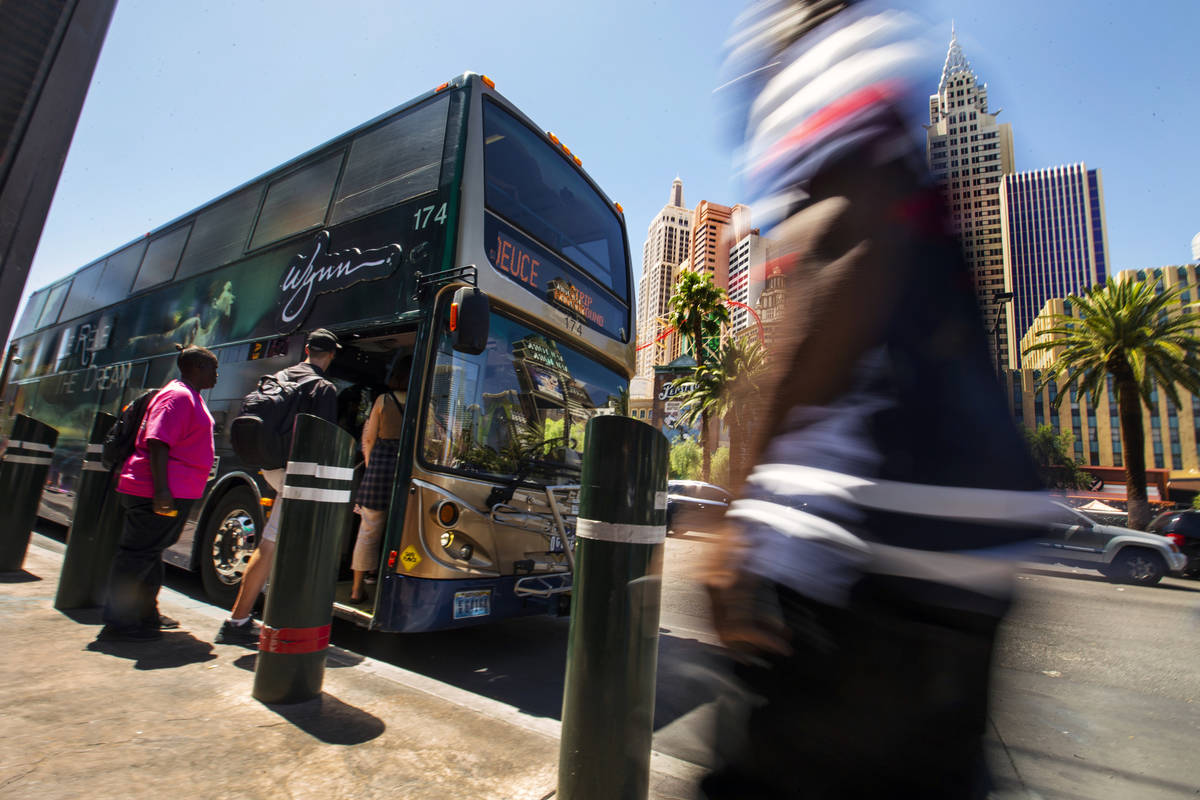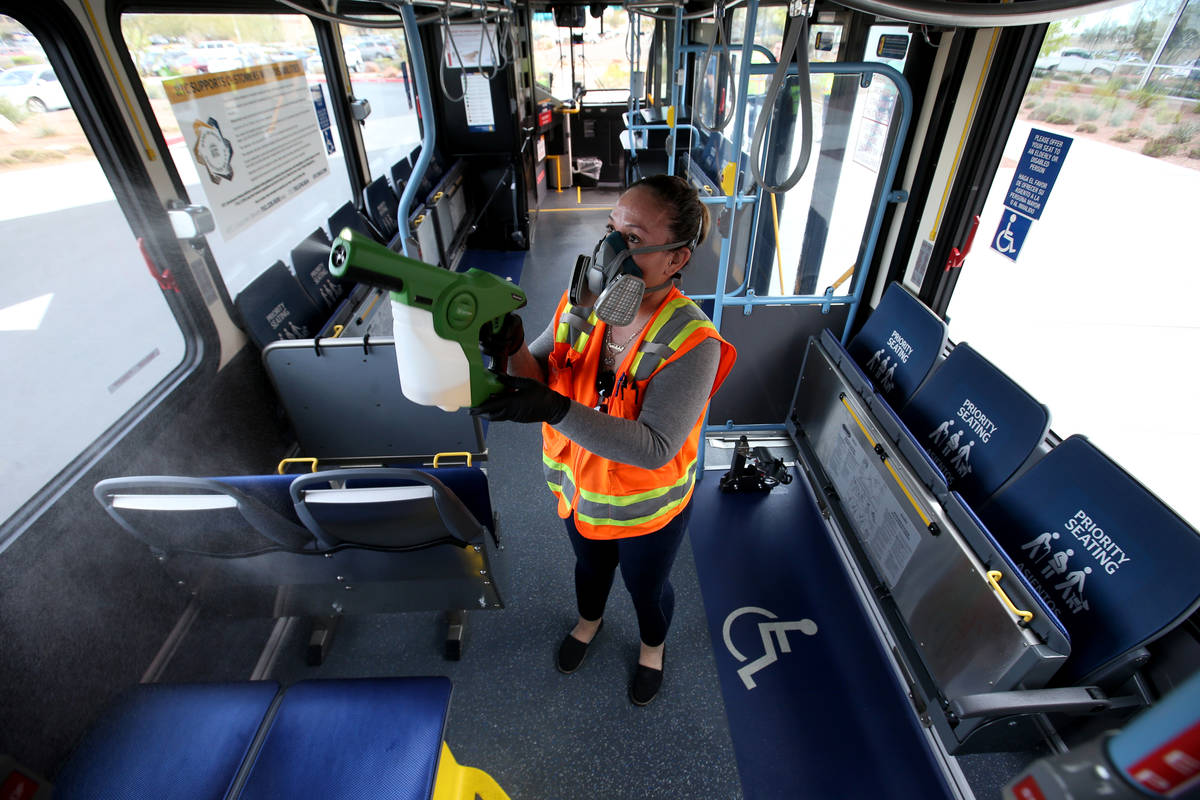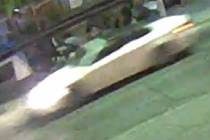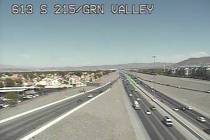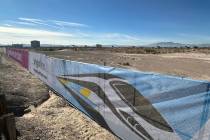RTC bus riders entering through rear doors to protect drivers
Riders on Regional Transportation Commission of Southern Nevada buses will now enter through the rear doors as part of an effort to prevent the spread of the novel coronavirus.
The move is aimed at eliminating close interactions with customers. Only riders in wheelchairs or who need assistance in boarding will enter through the front door.
Riders should now pay their fare on the rideRTC app or at a pass vending machine before boarding.
Bus drivers already have safety enclosures around their seats.
“We’re one of only a few transit agencies with the safety enclosures that covers (drivers),” said Francis Julien, RTC deputy CEO. “We were checking with the Federal Transit Administration … and starting Saturday we will fully implement rear-door entry to the vehicle. There will actually be caution tape at the front of the bus, so passengers cannot come through the front.”
Implementation of rear-door entry was expected to continue through the weekend before it’s eventually in use systemwide.
Additionally, the RTC began distributing safety masks to drivers Tuesday night after receiving a long-awaited shipment.
“We’re once again, really proactive,” Julien said. “We waited a really long time to get those facemasks, with the shortage that everyone’s been following. We have more orders that are pending as well.”
Drivers are also provided with gloves and hand sanitizer.
The Amalgamated Transit Union Local 1637 aired concerns ahead of the RTC’s announcement regarding both read-door entry and mask distribution.With two employees of RTC-contracted companies, MV Transportation and Keolis, testing positive for novel coronavirus last month, “Our number one concern is driver safety,” said John Foster, ATU Local 1637 president. “We reached out to MV (Transportation) and they reached out to the RTC. … We’re frontline employees but we’re never recognized as frontline employees. We get no respect from the governor (Steve Sisolak); never does he mention transit, never does he give a shout-out to transit for being essential by taking nurses to work and hospital workers. It’s like we’re obsolete and we’re being treated as such.”
The RTC increased its cleaning and disinfecting of buses last month, with all agency vehicles being cleaned nightly, and encouraged social distancing by placing signs on seats.
The RTC will continue to adhere to Centers for Disease Control and Prevention guidelines and will evolve as those recommendation do, Julien said.
The closure of nonessential businesses has also affected drivers’ ability to use the restroom while on their routes, which the ATU also alerted RTC and its contractors to.
Drivers can now use any available restroom near a stop, even if it means walking a few minutes to reach it, Julien said. Additionally, the RTC has set up a system to have a waiting bus at various points where a restroom is not available, where a waiting driver can take over the route for a short time.
“They can go either to a terminal or anywhere that’s off route and go to the restroom, then catch up with the other bus and switch buses,” Julien said. “So that way there is alway a bus at the terminal at the end of the route.”
Contact Mick Akers at makers@reviewjournal.com or 702-387-2920. Follow @mickakers on Twitter.



